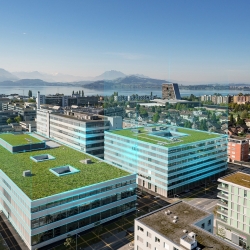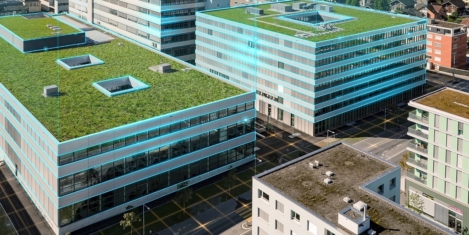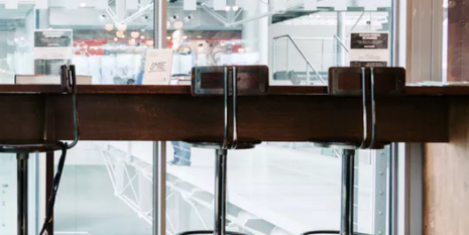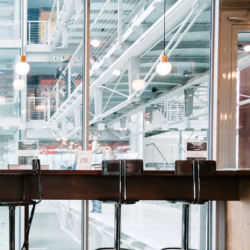February 23, 2022
We need a growth mindset for buildings to make them adaptable
 The world is in a race. And it’s a race against time – against rising sea levels, overcrowded cities, and a virus that has shown us a thing or two about being adaptable. Although the current developments around infection rates and the omicron variant are cause for hope that the virus will soon become endemic, the experience of the last two years have emphasized something important: There is an urgent need to transform infrastructure across different dimensions – one of which is the physical space: the changing needs and expectations of people in their buildings, factories, facilities, offices and homes call for adaptability. (more…)
The world is in a race. And it’s a race against time – against rising sea levels, overcrowded cities, and a virus that has shown us a thing or two about being adaptable. Although the current developments around infection rates and the omicron variant are cause for hope that the virus will soon become endemic, the experience of the last two years have emphasized something important: There is an urgent need to transform infrastructure across different dimensions – one of which is the physical space: the changing needs and expectations of people in their buildings, factories, facilities, offices and homes call for adaptability. (more…)










 The writer Alan Moore believes in magic. Not hocus-pocus magic, double double toil and trouble, but in the power of words and art to change reality and bring things into existence. It’s
The writer Alan Moore believes in magic. Not hocus-pocus magic, double double toil and trouble, but in the power of words and art to change reality and bring things into existence. It’s 
 Although the term ‘metaverse’ was coined in 1992 by science fiction novelist Neal Stephenson, it has only just entered the mainstream lexicon after
Although the term ‘metaverse’ was coined in 1992 by science fiction novelist Neal Stephenson, it has only just entered the mainstream lexicon after 








 A couple of years ago, in the wake of a surge in self-care start-ups and viral diet fads, Forbes declared 2019 as the year of the
A couple of years ago, in the wake of a surge in self-care start-ups and viral diet fads, Forbes declared 2019 as the year of the 
 While the debate about working from home versus working in the office continues, should the real conversation focus on the implications for a typical knowledge worker? ‘Knowledge work’ is a term that dates back over sixty years. It’s said to be first coined by Peter Drucker in his 1958 book The Landmarks of Tomorrow. The business guru went on to talk about knowledge workers in a later book, The Effective Executive, in 1966. He defined them as ‘high-level workers who apply theoretical and analytical knowledge acquired through formal training, to develop products and services’.
While the debate about working from home versus working in the office continues, should the real conversation focus on the implications for a typical knowledge worker? ‘Knowledge work’ is a term that dates back over sixty years. It’s said to be first coined by Peter Drucker in his 1958 book The Landmarks of Tomorrow. The business guru went on to talk about knowledge workers in a later book, The Effective Executive, in 1966. He defined them as ‘high-level workers who apply theoretical and analytical knowledge acquired through formal training, to develop products and services’. 
 The last 18 months have seen unprecedented change. Covid-19 has forced people to re-evaluate every aspect of their lives, including their career. As a result, we’ve seen a surge in workers taking charge of their careers and leaving their jobs as part of the so-called Great Resignation. Recent data from the
The last 18 months have seen unprecedented change. Covid-19 has forced people to re-evaluate every aspect of their lives, including their career. As a result, we’ve seen a surge in workers taking charge of their careers and leaving their jobs as part of the so-called Great Resignation. Recent data from the 








February 28, 2022
Hybrid working means we have to make the most of our time in the office
by Dr Omar Merlo • Comment, Flexible working